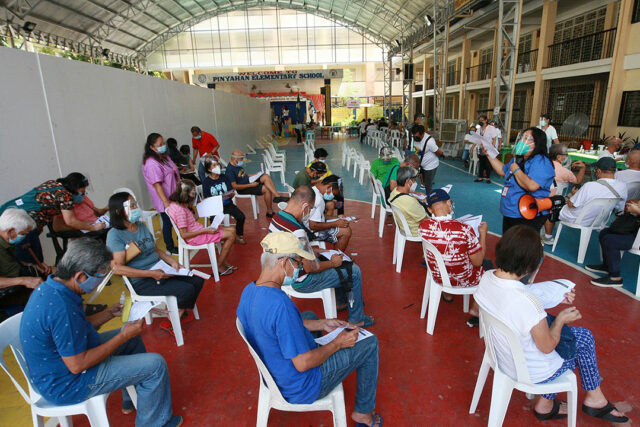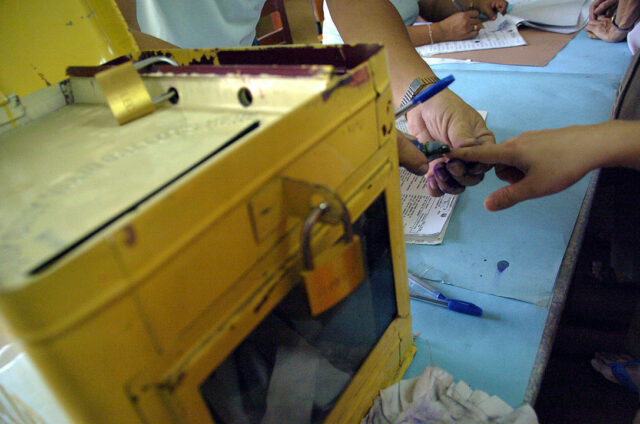The Commission on Elections (Comelec) First Division has ruled in favor of Ferdinand Marcos, Jr. on three consolidated disqualification petitions against his candidacy for President. The decision is a major victory against the legal challenges to Marcos’ drive for the country’s highest office.
But more than the decision itself, the manner in which it was arrived at, and the justification for it, have outraged lawyers, former government officials, and those ordinary folk who have some sense of both logic and justice.
All are understandably alarmed, and in various ways have expressed fears for the integrity and fairness of the May 2022 electoral exercise. It is the Comelec that is, after all, charged with that responsibility as mandated by the 1987 Constitution, which gives it a vast range of powers and oversight functions in the conduct of the elections that in this country are held every three years.
To allay citizen fears of Comelec partiality in the coming electoral exercise because of its belittling and excusing Marcos Junior’s failure to pay his taxes, for which he was convicted of tax evasion in 1995, spokesperson James Jimenez rushed to the defense of his colleagues by declaring that they did not say that the failure to file an Income Tax Return (ITR) is not a punishable offense. “It is,” he said.
And yet, what is one to say of the declaration by Aimee Ferolino — and Marlon Casquejo’s agreement with it — that Marcos Junior’s non-filing of his ITR for four consecutive years was a “mere omission,” and, in so many words, that there is no law punishing it?
Every taxpayer — except, it seems, Marcos Junior, Ferolino and Casquejo — knows that not paying taxes can mean a fine from P500,000 to P10 million as well as imprisonment of from six to 10 years. No one in their right minds would pay taxes otherwise.
Former Bureau of Internal Revenue Director Kim Henares also pointed out that the law is clear about the consequences of evading taxes for those in public office: “If you are a government official, you violate any provision of the Tax Code, (and) you get convicted, you are perpetually disqualified (from serving in any government post).”
Other lawyers essentially said the same thing: that Marcos Junior was convicted of not paying taxes from 1982 to 1985, and that the law also mandates disqualification from public office for the offender. But in one more demonstration of the extent of dynastic impunity, like his mother, who was convicted of seven counts of graft in 2018 and sentenced to six to 11 years’ imprisonment for each count, he did not spend a single day in prison despite that conviction.
As if Ferolino and Casquejo’s out-of-this world justification for rejecting the petition to disqualify Marcos Junior was not enough, they also waited until the third member of the Comelec First Division, Commissioner Rowena Guanzon, had retired before releasing their decision, and whose vote they therefore pointedly excluded.
Guanzon was in favor of disqualifying Marcos on the argument that his failure to pay his taxes for four years was not a “mere omission,” and that they “were repeated, persistent and consistent (and) reflective of a conscious design and intent to avoid a positive duty under the law and an intent to evade taxes due.” She also said that “moral turpitude” is “a question of fact and depends on all the surrounding circumstances.” Henares, however, said Marcos’ conviction was “simply a criminal case” for which he should be disqualified from ever running for a public office.
Given these circumstances, no one can be blamed for suspecting that what remained of the membership of the Comelec’s First Division after Guanzon’s retirement was determined, whatever the law says, and despite the evidence, to deny the consolidated petitions to disqualify Marcos Junior from running for President. They therefore concocted one of the lamest excuses ever heard in this neck of the woods to justify their decision, perhaps on the assumption that it would be confusing enough to defy criticism.
But what their decision has done is to awaken fears that the Comelec, rather than being the independent Constitutional body it is supposed to be, is once again, as it has so often been in the past — does anyone still remember the 2005 “hello Garci” scandal, or the 2016 allegations that the then Comelec Chair had received “commissions” from the lawyers of computerized elections technology provider Smartmatic? — being partial to certain candidates, which would make the results of the May elections less than credible.
A decision by the Comelec Second Division on the remaining disqualification case against Marcos Junior is still pending. Filed by a group led by lawyer Christian Monsod, who was one of the drafters of the 1987 Constitution, a denial of that petition based on the same argument or something similarly outrageous and illogical would further stoke those fears.
Not that succeeding events have been reassuring. Hardly had the ink in the First Division decision dried when at least two other controversies involving the Comelec further fanned those fears.
The Comelec’s “Oplan Baklas,” which is supposed to implement its own rules on the size and dimensions of political tarpaulins and posters, has been accused of bias against Vice-President and candidate for President Leni Robredo and her running mate Senator Francisco Pangilinan.
Comelec and police teams are whitewashing and taking down even those Robredo-Pangilinan murals, posters, and streamers on private property. Not only is the participation of policemen a violation of the rule against the political partisanship of government employees, their invasion of the properties of the citizenry also violates Section 2 of the 1987 Constitution’s Bill of Rights (“The right of the people to be secure in their persons, houses, papers and effects against unreasonable searches and seizures of whatever nature and for any purpose shall be inviolable…”).
That is not all, however. In what appears to be a brazen, in- your-face display of contempt for propriety and public opinion, whoever are in charge of the Comelec offices in Manila have chosen to bathe them in red and green lights — red and green are the colors of the Marcos Junior-Sara Duterte tandem — two months after the passing of the Christmas season.
Elections are among those exercises through which a free people are able to delegate their sovereign powers of self-government to their chosen representatives. Surely the Comelec knows that elections have to be free, honest, and fair to be legitimate expressions of the people’s will. It was precisely to make sure that they are, rather than the means through which the oligarchs can endow themselves with a semblance of legitimacy so they can remain in power, that the Comelec was created in 1940 through an amendment in the 1935 Constitution.
But the Comelec has since then demonstrated that it is about as independent from the powers-that-be and their collaborators as the rest of the government’s civilian and military bureaucracy.
The message these stark demonstrations of the impunity and power of the incumbents and their allies, clones, and surrogates are sending the entire citizenry is to abandon the pretense and the hope that the Philippines is, or will ever be, a democracy.
Together with the above indicators of seeming Comelec partisanship are, after all, such other probabilities as that — as the residents of certain cities in the provinces allege — the ballots have all been filled up, and, despite the official campaign period’s having just begun, the elections are all over but for the counting.
Luis V. Teodoro is on Facebook and Twitter (@luisteodoro).
www.luisteodoro.com









